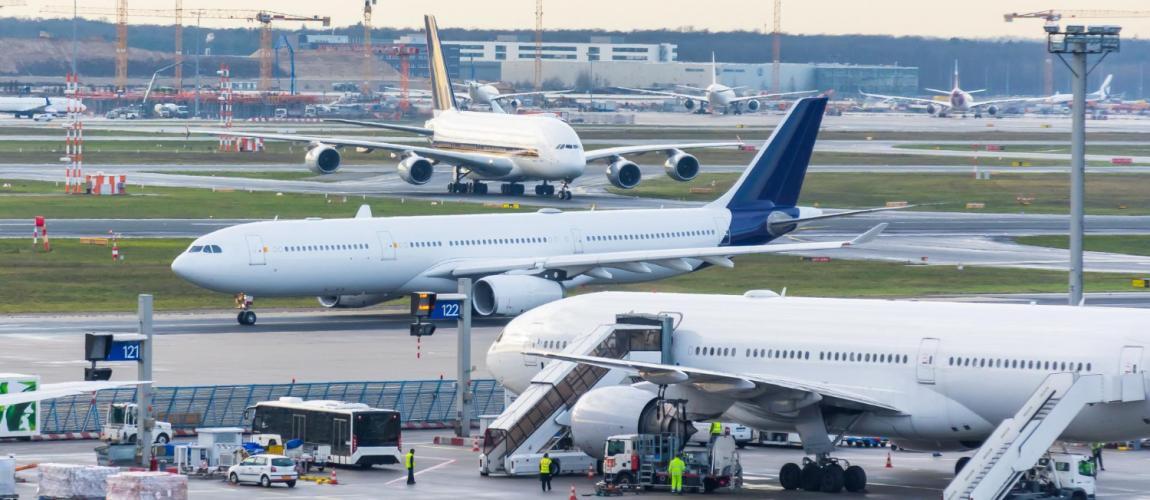Commercial and Landside Operations of I Gusti Ngurah Rai International Airport, Bali, Indonesia

Photo Credit: Image by Freepik
On this page: A case study on Commercial and Landside Operations of I Gusti Ngurah Rai International Airport, Bali, Indonesia. Find more at the Municipal Public-Private Partnership Framework - Project Summaries section for brief summaries of around 100 projects from around the world, examples of successes and challenges, as well as innovative ideas on solutions, or visit the Guidelines on Innovative Revenues for Infrastructure section.
Project Summary: Background Run by PT Angkasa Pura I (AP1), I Gusti Ngurah Rai International Airport (Bali Airport) is Indonesia’s second-busiest international airport. AP1 is an Indonesian state-owned enterprise responsible for managing 13 airports in the Eastern part of Indonesia, including Bali Airport. It serves 13 million passengers per annum, with an annual growth rate of 10 percent. Most of the airport’s revenues historically came from aeronautical activities, such as passenger service charges and aircraft landing and take-off fees. This was partly attributable to a lack of expertise in non-aeronautical (i.e., landside) commercial operations on the part of AP1. To gain insight into international best practice in landside commercial operations, AP1 decided to pursue a PPP with an multinational private company that had the expertise in the field. Project Structure In 2012, AP1 selected GVK, an airport development company based in India, to prepare, develop, operate, and manage the landside commercial facilities at Bali Airport. GVK received a 65 percent stake in the landside airport management concession.1 The management contract with GVK was established on a base fee and an incentive fee-based remuneration structure. The Indonesian government reportedly funded all capital expenditures for the renovation of the landside facilities. In developing the commercial activities, AP1 and GVK organized an open, online selection program to ensure that the selection of business partners would be conducted in a more professional, transparent, accountable, responsible, independent, and fair manner. In 2013, AP1 and GVK issued some new tenders for commercial activities at Bali Airport. The bidding for retailers resulted in more than 200 prospective bidders for the contracts. Eventually, DFS and Dufry International won the bid for a five-year contract to operate retail and duty-free shops at Bali Airport. AP1 also signed five-year concession agreements with three food and beverage operators, namely Bogajaya, Sumber Mas Utama, and Taurus Gemilang. Tenders for other services such as high-street fashion retailers, car rentals, hotel lounges, and travel agencies were also issued in 2013. In 2013, AP1 and GVK issued a number of new tenders for commercial activities at Bali Airport. The bidding for retailers resulted in more than 200 prospective bidders for the contracts, with DFS and Dufry International eventually winning a bid for a five-year contract to operate retail and duty-free shops at Bali Airport. AP1 also signed five-year concession agreements with three food and beverage operators, namely Bogajaya, Sumber Mas Utama, and Taurus Gemilang. Tenders for other services such as high-street fashion retailers, car rentals, hotel lounges, and travel agencies were also done in 2013. Lessons Learned The cooperation between AP1 and GVK has resulted in the following achievements: Increase in non-aeronautical revenues by 15 times (2009 versus 2014), reflecting an increase from IDR 6 billion (USD 444,000) to IDR 92 billion (USD 6.8 million); Increase in customer satisfaction score from 2.89 in Q3 2012 to 4.9 in Q2 2016, on a total scale of 5; Ranked World’s Third Best Airport for 2015 in the category of 15-25 million passengers per annum, based on Airport Council International survey; and Ranked the Best Airport in Indonesia for Airport Service Quality based on Airport Council International survey.2 The project benefitted from a clear vision on the part of high-level officials regarding the strategic aims of the PPP, which translated into a well-directed project. In this case, the contracting agency acknowledged its lack of experience in generating non-aeronautical revenue and thus invited an experienced, international player to leverage their knowledge and insight in non-aeronautical operations. The private partner was given a 65 percent stake in the management concession to enable and ensure the transfer of knowledge. This grants the private partner the right to be included in the airport commercial strategic business unit as one of the decision-makers, while ensuring the involvement of representatives from AP1 who can gain insight from their strategic partner. Footnote 1: Under Indonesian law, foreign investors can only own a 49% stake in an Indonesian airport but can own a majority stake in a management concession. Footnote 2: http://www.airport-world. com/news/generalnews/ 2632-gvk-s-baliinternational- airportawards- duty-free-andretail- contracts.html accessed 16 February 2019 https://www.gvk.com/ ourbusiness/airports/ iiaindonesia.aspx accessed 16 February 2019 http://www. globalconstruction review.com/ markets/7indias-gvkplans- indo7nesias-fir7stpriva7tely/ accessed 16 February 2019 https://swa.co.id/swa/ trends/management/ pt-angkasa-purapendapatan- nonaeronautical- melonjakhingga- ratusan-kali accessed 16 February 2019 https://economictimes. indiatimes.com/news/ international/gvk-callstenders- for-servicescontracts- at-bali-airport/ articleshow/20332322. cms accessed 16 February 2019 https://ap1.co.id/en/ information/news/detail/ selesaikan-proyekbandara- i-gusti-ngurahrai-- angkasa-puraairports- gandeng-- umkm-dan-pengusahalokal accessed 16 February 2019 http://www.sify.com/ news/gvk-hands-overbali- airport-projectcontracts- news-defaultnfnxp0eecbfsi. html accessed 16 February 2019
The Guidelines on Innovative Revenues for Infrastructure (IRI) is intended to be a living document and will be reviewed at regular intervals. They have not been prepared with any specific transaction in mind and are meant to serve only as general guidance. It is therefore critical that the Guidelines be reviewed and adapted for specific transactions.
To find more, visit the Innovative Revenues for Infrastructure section and the Content Outline, or Download the Full Report. For feedback on the content of this section of the website or suggestions for links or materials that could be included, please contact the Public-Private Partnership Resource Center at ppp@worldbank.org.
Updated:
TABLE OF CONTENTS
I. Innovative Revenues for Infrastructure (IRI)
2. Introduction to Commercial Value Capture (CVC)
3. Applying CVC in Infrastructure Projects
2. Case Studies in CVC from International Experiences
Related Content
Select WBG PPP Toolkits
Featured Section Links
Additional Resources
Climate-Smart PPPs
Type of ResourceFinance Structures for PPP
Type of ResourceFinancing and Risk Mitigation
Type of Resource